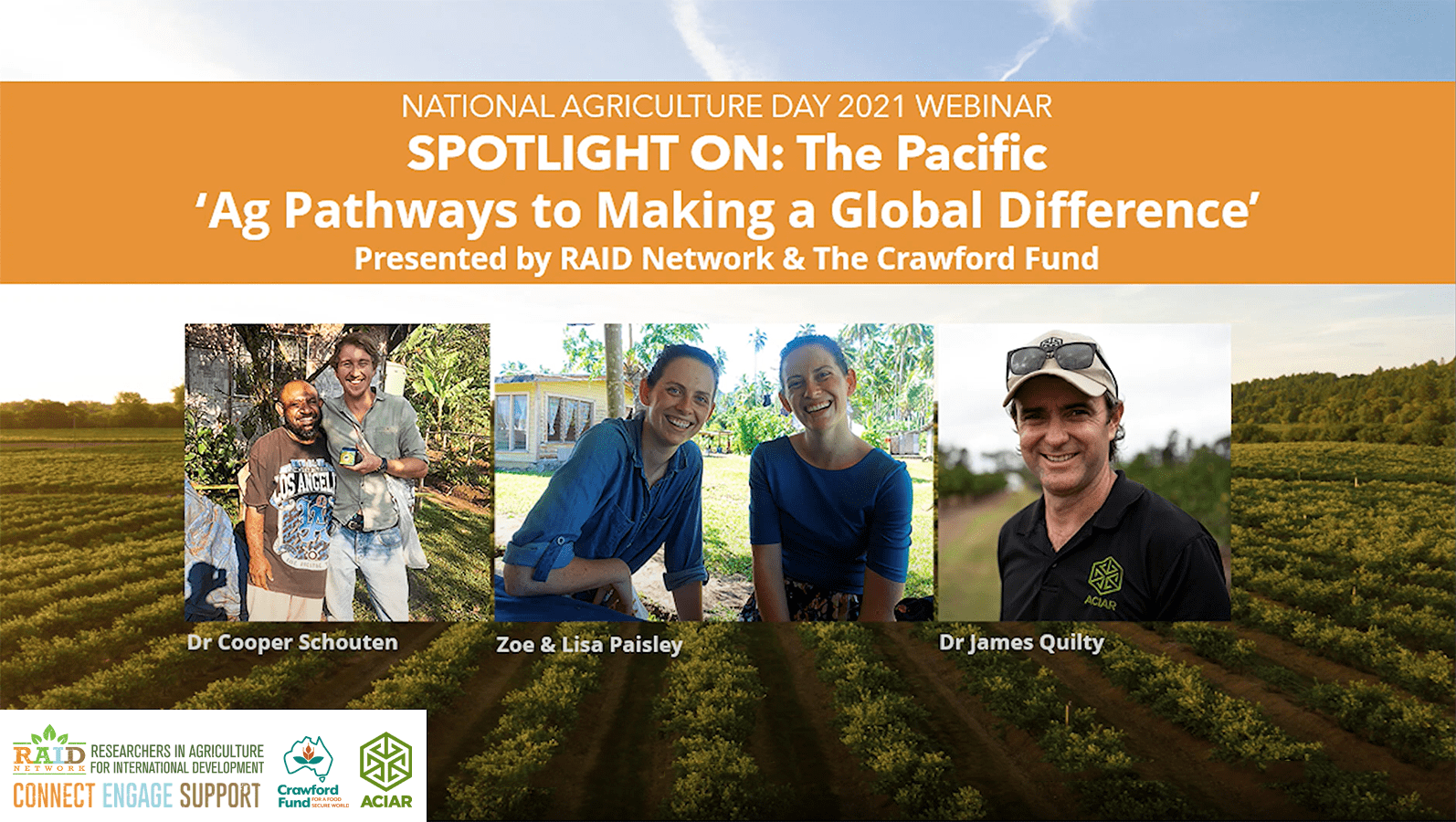

Ag Pathways to Making a Global Difference
December 2, 2021

The Crawford Fund and Researchers in Agriculture for International Development (RAID) Network are so pleased to have been part of National Ag Day 2021 on 19 November!
With the focus of #AgDayAU on celebrating the fabulous and fulfilling career opportunities on offer in agriculture, we added the ‘international’ dimension to careers in ag, with a spotlight on the Pacific.
We celebrated National Ag Day with a free online panel “Ag Pathways to Making a Global Difference”.
The event fitted in perfectly with the Crawford Fund’s ongoing NextGen program to encourage more young Australians in their studies, careers and volunteering in ag for development. And RAID’s efforts to bring together young Australians with an interest in agriculture and international development.
If you missed the webinar, you can now watch it below:
Our speakers were all passionate about ag – at home and abroad. They all started out studying ag but ended up focused on ag in the developing world and particularly in the Pacific. They will explain how working in ag for development has amazing global, national, professional and very personal impacts, with their broad range of pathways to rewarding and exciting careers.
The panel was for anyone with an interest in learning about agriculture beyond our borders, which benefits both Australia and our neighbours, and how to get there!
Our MC was Jessica Fearnley from RAID who received a Crawford Fund student award for her research in Cambodia and is now a Development Officer for Temperate Fruits at the NSW Department of Primary Industries. Along with Jess, speakers were:
- Cooper Schouten, ‘the bee guy’ and project manager for the Bees for Sustainable Livelihoods Research Group at Southern Cross University.
- Lisa and Zoe Paisley, founders of the social enterprise Aggie Global, a developmental agriculture business, empowering Fijian farmers to improve income and food.
- James Quilty, Research Program Manager for Soil and Land Management at the Australian Centre for International Agricultural Research (ACIAR), which is part of the Australian aid program and supports research to improve agricultural and food systems in partner countries.




